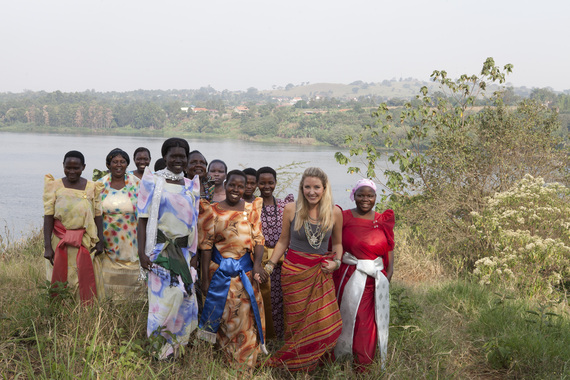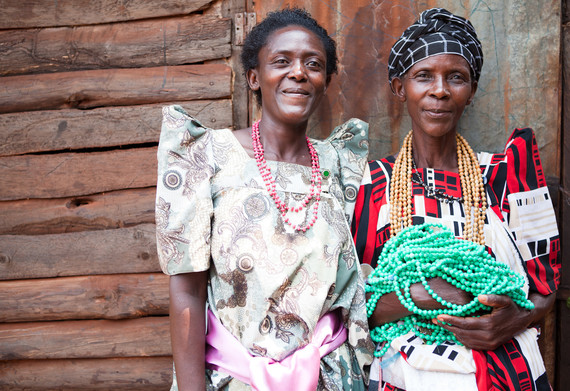It was the summer of 2004 and Brittany Merrill Underwood, then a sophomore in college, had planned on spending the summer in Europe with friends. Instead, a teaching position opened up in East Africa and she found herself in a rural Ugandan village with no running water or electricity. Two weeks into her trip she was brainstorming excuses to leave. All of this changed when she encountered the story of a brave Ugandan woman.
Sarah was not much older than Brittany, but lived her life with purpose as she sacrificed everything she had to care for 24 children who slept on her floor. At a time in her life when she could only think about herself, Brittany was inspired by a woman who sacrificed the little she had to care for others.
"While I was in Uganda, my sense of complacency was shaken when I discovered that girls my own age, across the globe, were enduring hardships that bore no resemblance to my own experience. I was moved by the dedication that I saw in brave Ugandan women like Sarah and I dedicated myself to their cause," Underwood said.
Underwood's dedication turned into the Akola Project. It's mission is to empower marginalized women to transform the physical and spiritual livelihoods of their families and communities. Akola means "to work" in Uganda's Lusoga dialect and the project is devoted to equipping women with the tools to provide for their families and communities through their own efforts and hard work.
Operating as a non-profit and a social business, the Akola Project has empowered women through vocational training, employment opportunities, educational programs, and given them the means to earn and save money. High-quality fashion and home-good products made by the women of the Akola Project have been sold in over 220 boutiques throughout the United States. By providing sustainable skills and reliable income for women, the Akola Project has lifted over 1,400 women and children out of extreme poverty.
Almost 10 years after her first encounter with Sarah, Underwood's Akola Project has successfully built a three-story orphanage home, constructed two vocational centers, created a thriving business enterprise to train and employ 200 women and drilled 23 clean water wells across Uganda.
"I started Akola to empower women to uplift the spiritual and physical livelihoods of their families and communities," said Underwood. "Our end vision is the development of a luxury brand with a global story that is simultaneously empowering and benefiting marginalized women in Africa and America."
That said, Akola has just announced their expansion to employ women in America.
Akola Project's expansion to Dallas will work with young girls and women, ages 10-35 years-old who are recovering victims of human trafficking. Akola will teach these girls and women vocational skills such as industrial sewing, so they can generate an income and have the capacity to find reliable employment. A partnership between Akola Uganda and Akola Dallas will generate high-quality design products, jewelry and a clothing line that is made by and fully benefiting marginalized women on two continents at once.
Photos courtesy Akola Project.
--
The views expressed do not necessarily reflect the opinion of Creative Visions Foundation. Personal opinion of the author only.

